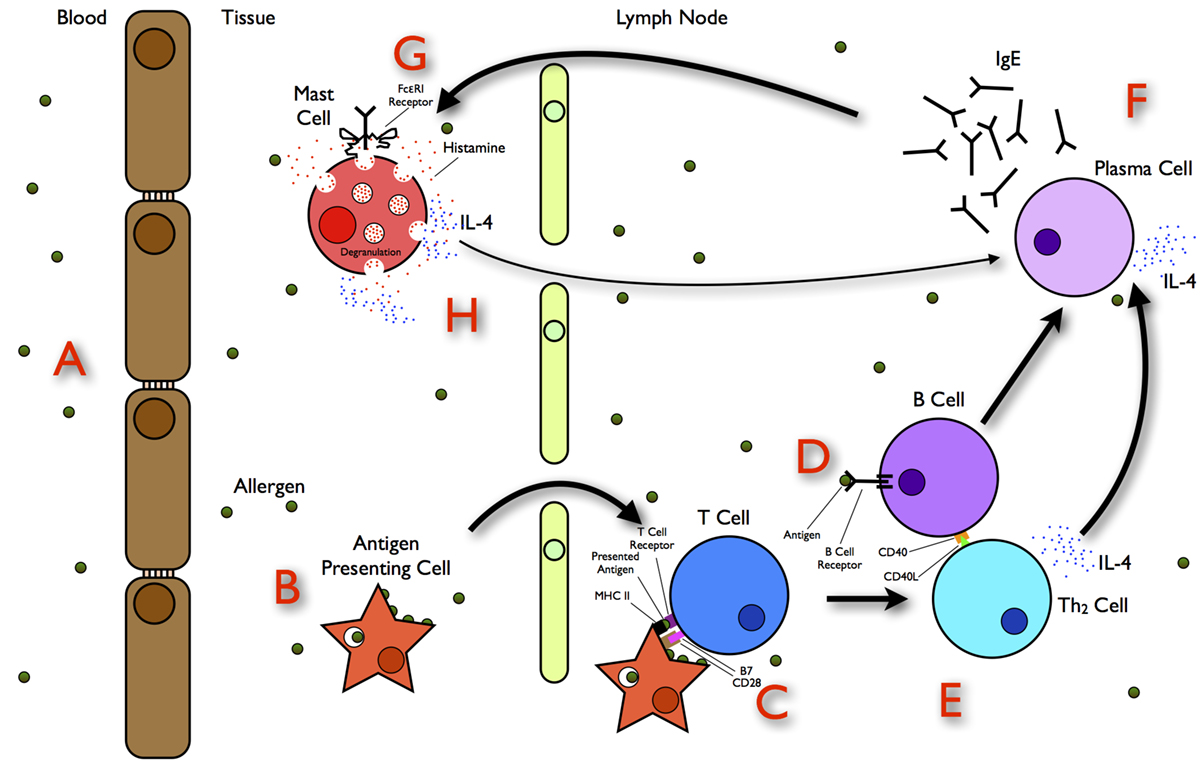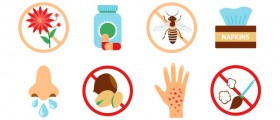
Histamine and Histamine Reaction
Histamine is a substance which is commonly released in allergic reactions due to response of the immune system. The symptoms of hyper production of histamine develop only after this substance has reached histamine receptors and stimulated them. Histamine is actually a trigger of inflammatory processes caused by allergic reactions. People may develop allergies to numerous allergens and all of them will face increased production of histamine and specific symptoms once they have been exposed to particular allergen.
After being released histamine may affect different parts of the body. Our body contains several histamine receptors. Histamine reaction is a result of stimulation of particular histamine receptor. If H1 receptors have been stimulated the leading effect is dilatation of blood vessels. This leads to hyperpermeability of the blood vessels. Increased permeability allows fluid to leave blood vessels and enter the skin causing swelling. Redness, which is another characteristic of histamine reaction, is also caused by dilatation of blood vessels. Additional reaction of the body to stimulation of histamine receptors includes contraction of smooth muscles. Smooth muscles typically contract in asthma attack. Anaphylaxis is the most serious form of histamine reaction. It may be life-threatening and if not treated timely it may cause death. It is also important to mention special H2 receptors situated in the cells of gastric mucosa. These receptors are in charge with stomach acid production.
Causes of Histamine Reaction
Histamine reaction may be caused by numerous allergens. Some of them include pollen, dust, animal dander, mold, and mites etc. In some people histamine reaction can be induced by certain foods. It also occurs after insect bites and stings.
Symptoms of Histamine Reaction
There are several symptoms related to stimulation of histamine receptors.
In case H1 receptors are stimulated the most common symptoms are skin rash, hives, swelling, itching sensations. Patients may additionally suffer from headache and problems with breathing. Depending on the allergen additional symptoms may include itchy and watery eyes. In anaphylaxis which is a systemic reaction, patients have to deal with constriction of airways and excessive swelling. Patients who are suffering from anaphylaxis may also experience diarrhea and vomiting, sudden drop in blood pressure and confusion.
If H2 receptors have been stimulated the reaction is connected to increased production of gastric acid.
Treatment for Histamine Reaction
Histamine reaction is successfully treated with antihistamine medications. They neutralize the effects of histamine by blocking histamine receptors. This does not allow further inflammation and depending of the time when they are applied antihistamines can partially or complete eliminates symptoms of histamine reaction or even prevent its occurrence. Antihistamine medications may block either H1 or H2 receptors.
















_f_280x120.jpg)
Your thoughts on this
Loading...